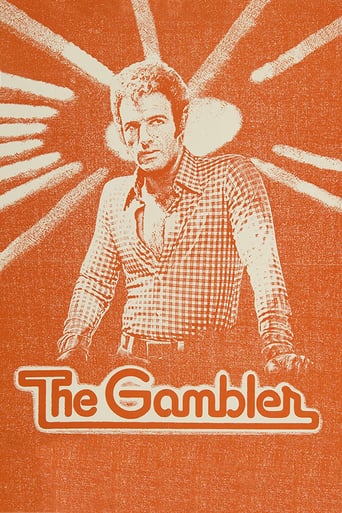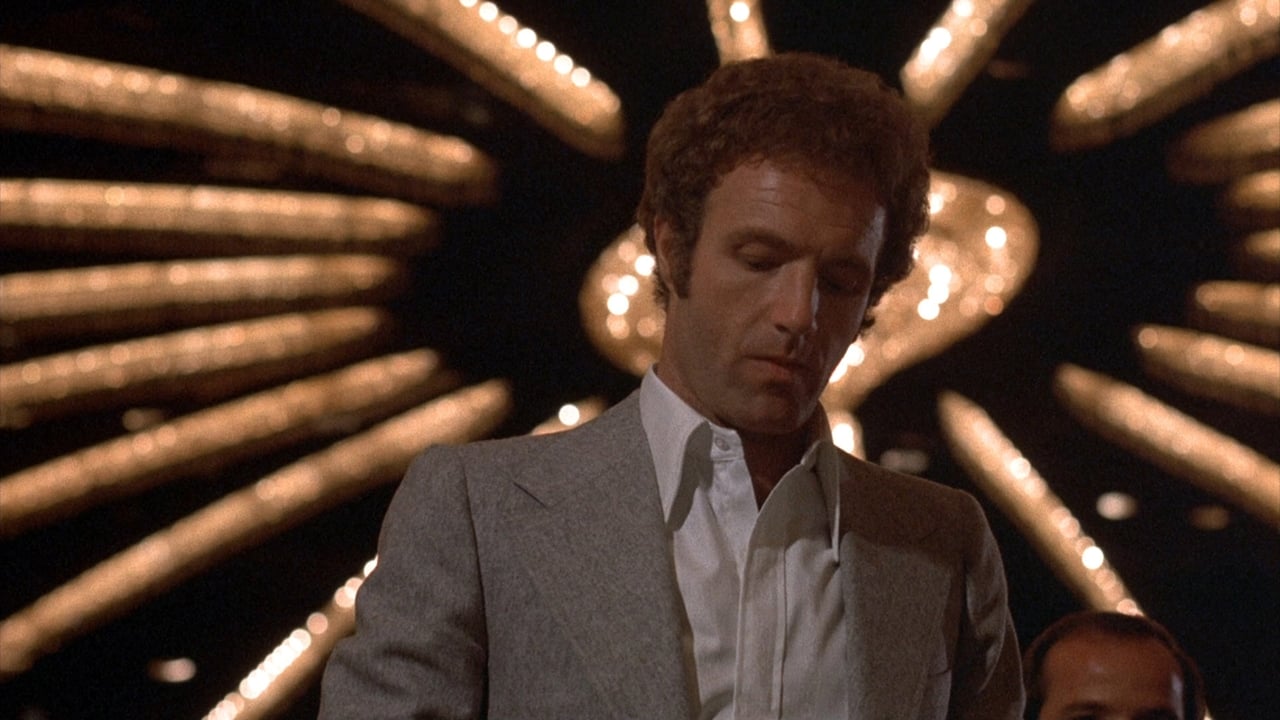virek213
Apart from drugs and booze, probably the most costly addiction there is out there is Gambling. And yet it is an addiction that a hell of a lot of people can't seem to break, any more successfully than some can at the other two vices. One wouldn't think that such a grim subject matter could make for a good, let alone compelling film. But back in the experimental, anything-goes world of 1970s Hollywood, screenwriter James Toback, who by his own admission had been a compulsive gambler prior to his realizing how much better off he was at writing, made it compelling in the form of THE GAMBLER.In this 1974 film, directed by the Czech-born Karel Reisz, known for such films as 1966's MORGAN, James Caan portrays Axel Freed, a highly respected professor of literature at City College of New York who seems to have it all. He has a great girlfriend (Lauren Hutton, in one of her earliest roles), and a line of work in which he regales his students in George Washington, and even the Russian writer Fyofor Dostoyevsky's classic 1866 short novel "The Gambler". Unfortunately, he himself is a gambler, in the most literal sense possible. And not just any typical here-and-there type, but one addicted to the rush of betting on casino games in Las Vegas (or Lost Wages, according to many a wag), and on sporting events. He gets so caught up in the rush, explaining that there is no "juice" in not risking, that pretty soon he realizes he is up to his eyeballs in gambling debts of up to $44,000-and to the kind of people who don't take their clients not paying up particularly well, including, among others, Paul Sorvino and Burt Young. It comes down to asking one of his students basically to throw a basketball game to get him out of his fiduciary jam; but by then, his self-destructiveness is pretty much a foregone conclusion.Such an unsavory character just wouldn't fly these days in Hollywood, even though this film was remade exactly 40 years later with Mark Wahlberg in Caan's role (and was not all that memorable). But Caan, who up to this point had already gained a sizeable reputation as an actor via his role as Brian Piccolo in the 1971 TV film BRIAN'S SONG, and then as Sonny Corleone in THE GODFATHER, does such a good turn at playing the addicted teacher that we definitely feel for him in a lot of ways, even though we can despise what he does to others through that habit, not only to Hutton, but also to his mother (Jacqueline Brooks) and father (Morris Carnovsky).By today's standards, even at 111 minutes, and with a fair amount of four-letter words in Toback's script, this film isn't exactly a fast film. But not films have to be fast to be compelling; and it is because of Caan's performance, Reisz's direction, and the steady editing of Roger Spottiswoode, who had worked with Sam Peckinpah on, among other things, STRAW DOGS, that THE GAMBLER works well enough to make even the slow spots more than bearable. It also doesn't hurt to have James Woods here, in one of his earliest roles, along with M. Emmett Walsh, Stuart Margolin, and Vic Tayback, either.The other notable thing about THE GAMBLER is that the psychological and self-destructive dynamics of Caan's character are manifested via the underrated composer Jerry Fielding's chilling interpolation of Gustav Mahler's Titan Symphony (no. 1) into his score (it is also heard on the soundtrack as performed by the Concertgebouw Orchestra of Amsterdam under Bernard Haitink). The use of this ultra-popular Mahler symphony enhances the almost nightmarish quality of Caan's gambling addiction.In summation, while it is not exactly the most rapidly-paced film ever made, and is sometimes quite disturbing, THE GAMBLER is also exceptionally compelling, and a solid look at the experimentalism of 1970s filmmaking, in a way that far too many Hollywood films of the 21st century are not.
blueskysattv
Spoiler alert So for the ending that confuses people; Axel has just lost his last shred of character and any sense of ethics by corrupting his student basketball player to get out of his jam. He has absolutely nothing left of value and no reason to live, he has proved himself to be the true coward he has always known himself to be. On a death wish he goes into the ghetto looking for trouble, which he finds with the pimp and prostitute. After goading the pimp into killing him fails, he takes his anger and hatred for himself out on the pimp, and the only thing that stops him from beating the pimp to death is the prostitute's knife. His face sliced open, he staggers down the stairs and looks into the mirror with a smile, as while he wasn't killed at least he has been permanently disfigured. This film is all about self hatred - gambling is just a symptom of what is really going on with Axel.
tieman64
Before Steve McQueen's "Shame" was director Karel Reisz's "The Gambler". Both films watch as an addict and masochist descends into self-obliteration, only here we have actor James Caan as Alex Freed, a Jewish professor who is addicted to gambling.Several sequences flesh out Freed's state of mind. Before his students he relates two stories, one in which human willpower is trumpeted over "reality" - the gambler's steadfast self-belief – and another in which Freed essentially states that "Americans don't take risk". Freed, of course, takes irrational risks. That's his modus operandi.James Caan has stated that he regards "The Gambler" as containing his finest performance. He's excellent, but the film itself consists of nothing but sequences in which Freed makes bets, loses and then proceeds optimistically to the next bet. The film then climaxes with a powerful sequence in which Freed visits a prostitute and provokes a fight with a pimp. This pimp slashes Freed's face with a blade. Interestingly, Freed seems to delight in being cut, simultaneously aroused by his desires for self-destruction and unconsciously disgusted with his life (he seems to deplore his wealthy family members, seeking penance for both "their behaviour" and his own oppositional lifestyle choices). The film costars Burt Young as Carmine. He's terrific as a loan shark who shifts from close friend to terrifying brute.7/10 – See "The Hustler" and "California Split".
sol-
A gritty, realistic film about addiction, it has a bit of haunting atmosphere to it, and although awfully dreary and a touch too harrowing for its own good, the film still packs a punch. Caan has a very interesting character, one who understands his own addiction yet still deceives himself, and he gives off a very solid performance, even though his character does come off rather cold and a bit hard to relate to. What the film shows us and what happens is quite predictable, but that does not prevent it from still having potency, and the ending certainly is not predictable, and is actually rather fascinating. The film's music score fits the project perfectly, and the driving sequences depict the character's feelings very well. Certainly this worth checking out, even if it is no cinema masterpiece.



 AD
AD





